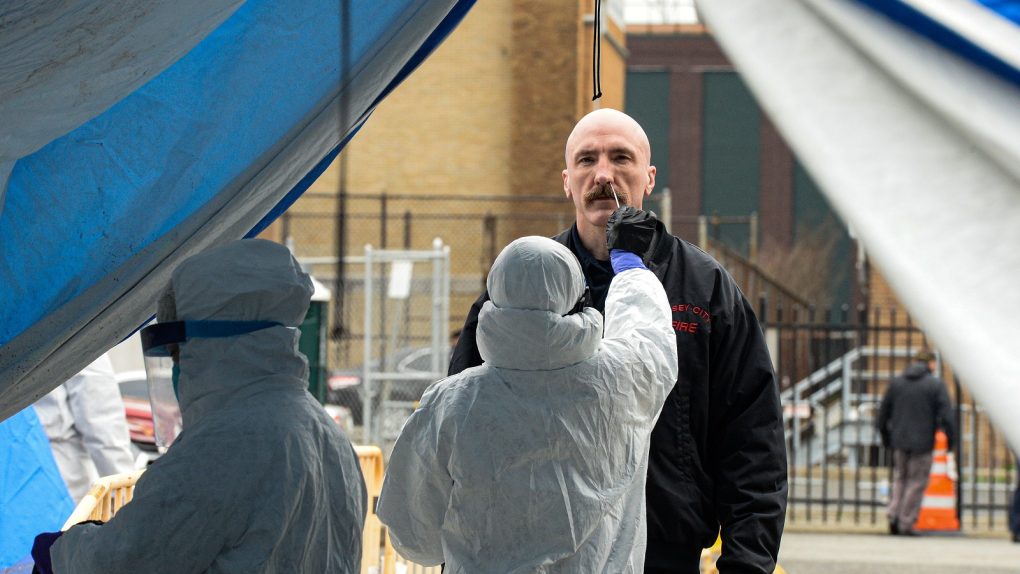- A doctor from Siberia conducted a controversial coronavirus immunity test after surviving COVID-19 in March.
- The 68-year-old Russian doctor spent time with coronavirus-positive patients without wearing a mask to see if he could get a second COVID-19 infection.
- The doctor was infected a second time after about six months and experienced a worse COVID-19 case than he had previously.
A doctor in Russia spent time with coronavirus patients without wearing a mask and repeated the experiment for months to see if he can catch COVID-19 a second time. This unusual coronavirus immunity test can easily be filed under the “only in Russia” segment of COVID-19 news. For example, only in Russia was a coronavirus vaccine approved for mass use before any scientific research was shared with the world and before the drug cleared the Phase 3 trial. The story gets even crazier, considering the doctor’s age. At 68-years-old, Alexander Chepurnov happens to be the kind of COVID-19 patient most at risk of developing a severe case. It’s not necessarily just the age; it’s his gender and the fact that the elderly do develop plenty of medical conditions that can hinder the recovery in COVID-19.
Even so, Chepurnov’s controversial experiment isn’t without merit. It’s certainly the kind of experiment that others wouldn’t necessarily approve of, especially in western countries. But it’s the kind of experiment that can yield results — and Chepurnov did get his wish. He was reinfected with COVID-19 within six months from the first bout.
Chepurnov thinks he was infected with the novel coronavirus at some point in March. He told Novosibirsk newspaper Komsomolskaya Pravda (via Newsweek) that he thinks he caught the virus in Moscow, where he stopped off on his way to a skiing holiday in France. In March, Russia hardly had a notable coronavirus epidemic, at least according to official numbers. Case in point, Chepurnov was diagnosed after the fact, with antibody tests that highlighted the presents of COVID-19 antibodies.
Chepurnov said he experienced fever, chest pain, and a sudden loss of smell. He was diagnosed with pneumonia at home, not COVID-19.
Chepurnov and his research team at the Institute of Clinical and Experimental Medicine, which is part of the Russian Academy of Sciences, started to monitor his antibodies. He discovered that they vanished after three months. “The observation [showed] a fairly rapid decrease,” he told the paper. “By the end of the third month from the onset of the disease, they ceased to be determined.” This falls in line with other studies about COVID-19 antibody life.
The Russian doctor decided to get reinfected and see how his body responded, and he started spending time with positive patients without wearing a mask. He was tested for reinfection every two weeks, and the positive result came six months after his first COVID-19 case.
He became ill, experiencing high temperature, loss of smell, and pneumonia. “The pain was more severe than the first time,” Chepurnov said.
Chepurnov’s story also seems to fall in line with other studies that say immunity can last for at least 5-7 months. The story also proves that immunity lasts even after the antibodies are gone and suggests that other immune system components are indeed involved in providing prolonged protection. Others theorized that T cells would extend immunity beyond the life of the first batch of antibodies. Chepurnov’s empirical findings are also important for vaccine research. If immunity lasts less than a year, more booster shots might be needed after the initial doses.
At the same time, there have been documented cases of reinfection that occurred only a few months after the first case. Like Chepurnov’s second case, some of them were worse. An 89-years-old woman in the Netherlands died after her second bout with the illness.
But Newsweek points out a problem with the experiment. Because his first case of COVID-19 hasn’t been diagnosed via a PCR test, and there’s no trace of the first strain, there’s no way to show whether the doctor was infected with a different strain of the virus or a different one. Other cases of reinfection were proven with genetic testing of the strains. Also, Chepurnov’s experiment hasn’t been published in a scientific journal, and it’s unclear what scientific rigors were applied. This is still coming out of Russia, the country that approved a vaccine before it proved it was effective or safe.
Still, if his findings are accurate, Chepurnov is actually right to warn against using a herd immunity approach to beat the pandemic. The doctor also said that the drug would be with us for many years to come. The following winter months might give us more data about COVID-19 reinfection risk. Enough time will have passed for some people to risk reinfections. If those happen, they’ll be closely inspected and highly publicized.







